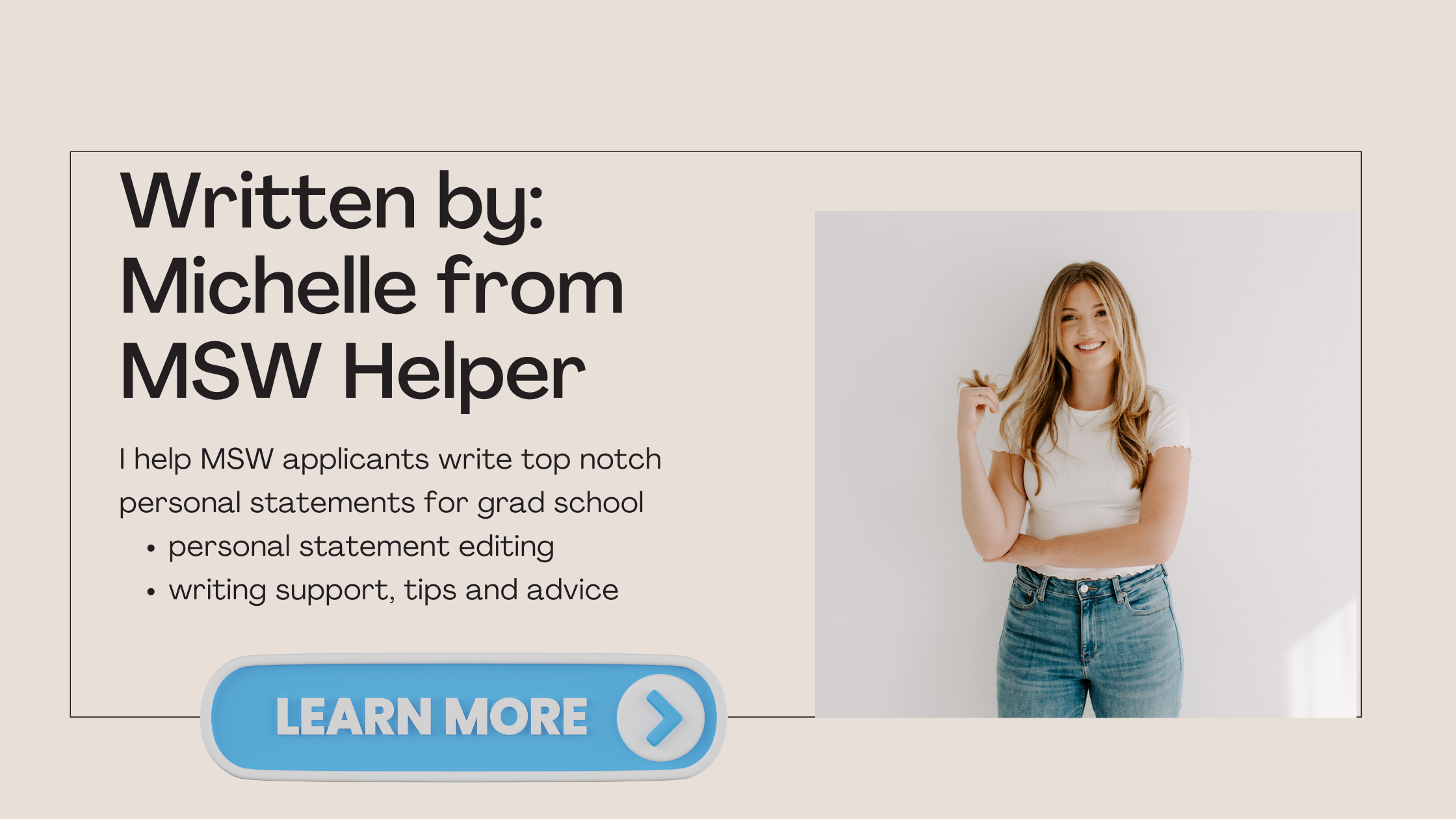How to talk about weaknesses and areas of improvement in your Master of Social Work (MSW) personal statement
Key takeaways:
Schools of social work are looking for you to demonstrate your critical thinking skills when asking about your weaknesses.
Avoid humble bragging or avoiding the question altogether. Instead, talk about skills you need to develop as a social worker to show that you have the critical self-reflection skills needed to become a social worker.
Talking About Weaknesses In Your Personal Statement
If you’ve ever had a job interview in the past where you were asked what your areas of weakness are, you might know that the standard answer is to provide a humble-brag, or a weakness that is actually a strength.
“I’m a perfectionist”, “I work too hard”, and “I care too much” are standard answers people often give. People often avoid answering this question because they don’t want to give an answer that might be a dealbreaker for the role.
Schools of social work often ask this question as well, and they are not looking for these types of answers. They are looking for you to demonstrate your critical thinking skills as it pertains to social work practice, which might not be the same as what you would say in a typical job interview.
Let’s talk about how to strategically answer questions about your weaknesses in your personal statement.
Discuss Power and Privilege
This is a good place to discuss your power and privilege, and how that might impact your work with certain populations. You may want to tell the reader about your social location (things like gender, race, skin color, wealth, etc.), and how you’ll address any barriers or problems that could arise as a result of your social location.
Discuss Skills You Need To Develop As A Social Worker
Maybe there’s a skill you need to learn or develop further as a social worker. I know a lot of people struggle with things like boundary setting, having difficult conversations, or navigating the line between appropriate levels of empathy and compassion with the people they’re working with. If that’s the case for you, you can make note of that, and discuss how you’ll develop the skills that are needed to be an effective social worker.
Don’t Skip The Question!
Whatever you do, don’t shy away from the question! Often schools will ask for both strengths and weaknesses, and I have seen people list strengths and just not answer anything for weaknesses. We all have areas of improvement we could be working on, and by being honest about your answers you can show the admissions committee your critical thinking skills.
Watch Training: How To Talk About Weaknesses In Your Personal Statement
Strengths In The Personal Statement
In this expanded guide we dive even deeper on this topic as well as how to talk about your application strengths. Check out Strengths and Weaknesses in the Personal Statement.
Ready For The Next Step In Your MSW Journey?
If you found this helpful, don’t forget to enroll in my FREE 10-day mini course for MSW applicants. Through a series of emails, I’ll teach you how to write a strong personal statement for your Master of Social Work program.
Here are our guides on how to answer the most common prompts in the personal statement, which is part of our MSW Application Guide.
Tell Us About a Social Justice Issue (Coming soon)
Experiences With Diversity, Self-Reflection, and Antiracist Practice (coming soon)
Why Are You Interested In Our MSW Program?
Happy writing!
-Michelle

